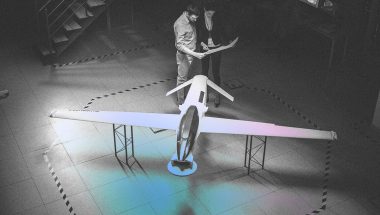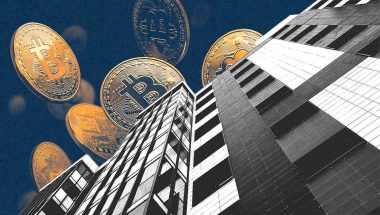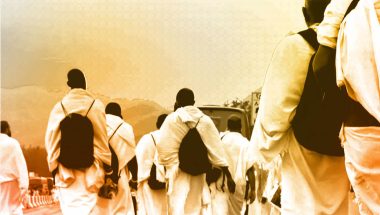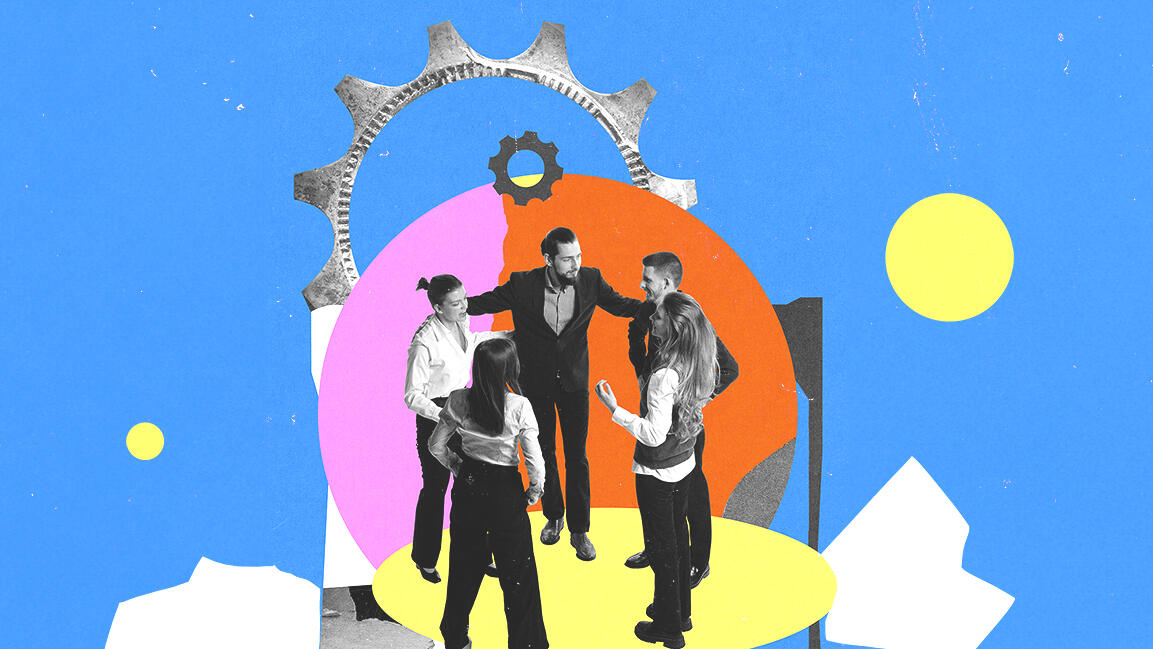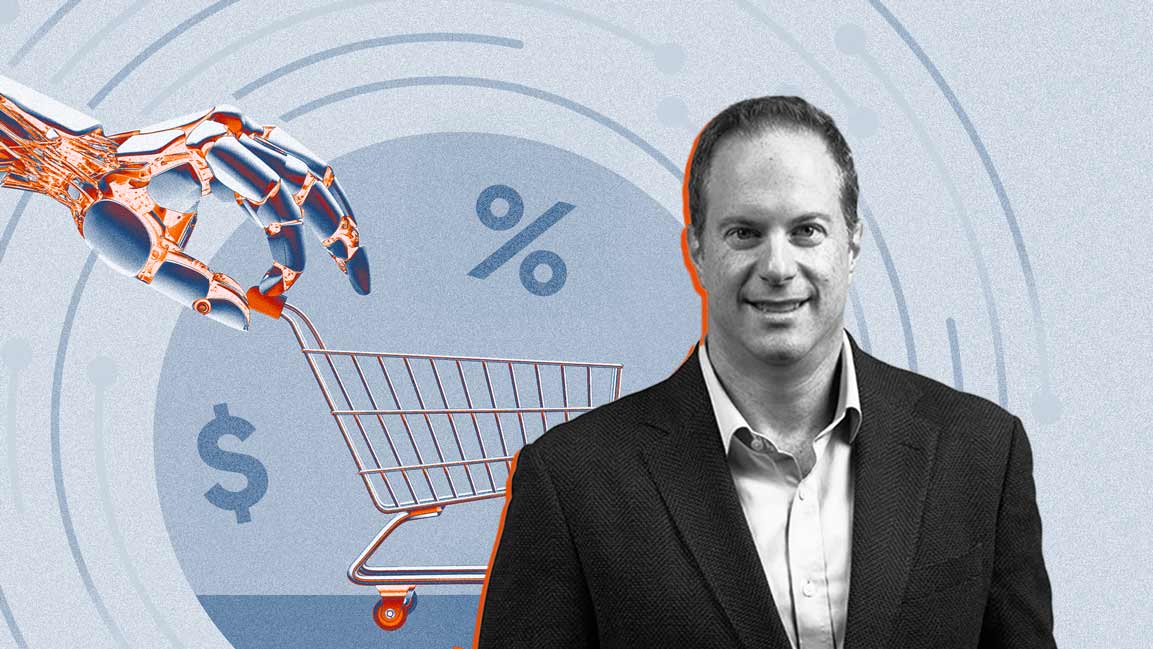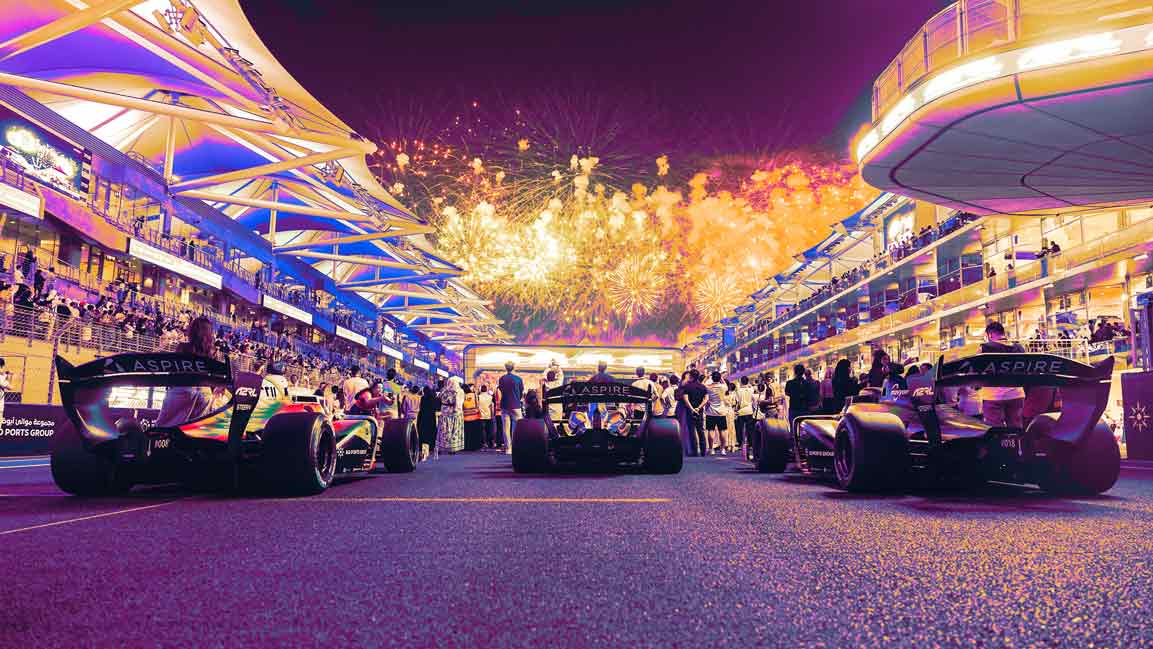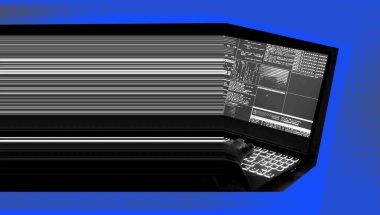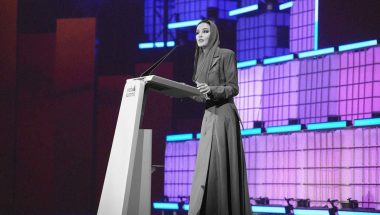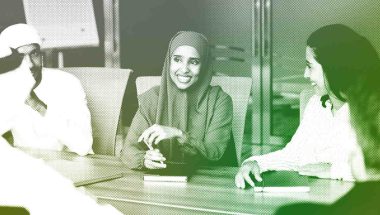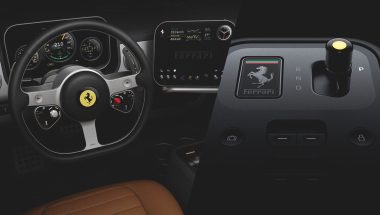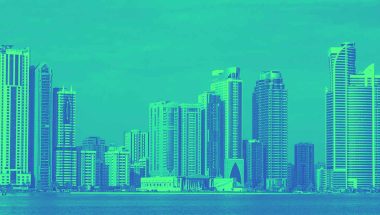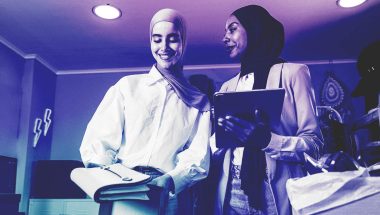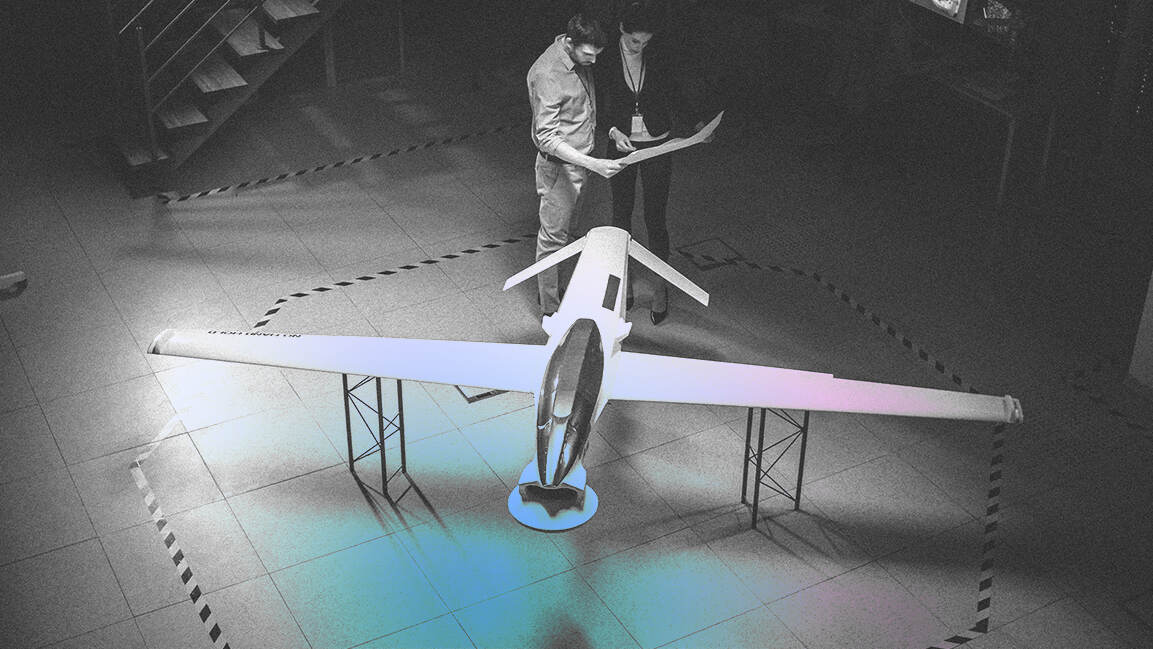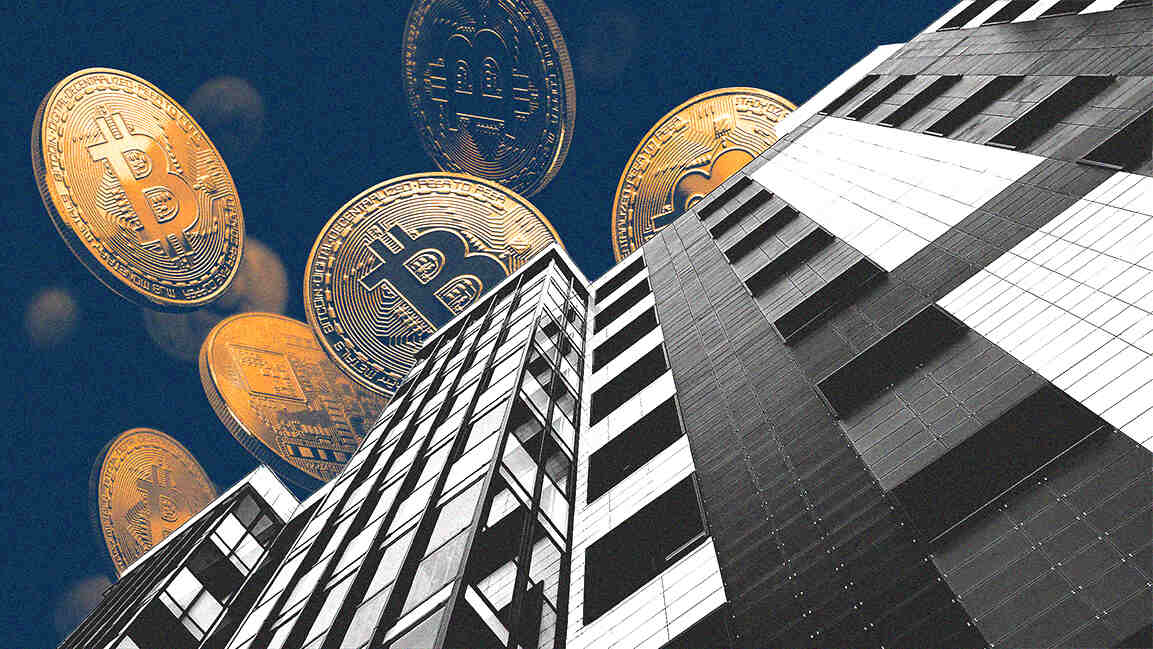- | LEAP
LEAP will showcase global tech. And the Middle East is ready to invest
The annual tech event in Riyadh, a center for promoting innovation and entrepreneurship, is a pace-setter in new kinds of thinking around technology.

$24.7 billion.
That’s how much Saudi Arabia will spend on technology by 2025. This is reportedly the highest government spending on technology in the world. The country is investing $6.4 billion in future technologies and startups, unveiled at LEAP this year.
If it sounds exciting, it’s because it is. The kingdom has the resources and conviction. Arguably, something that’s missing for many countries.
As the oil-rich nation races to diversify its economy, it is now using its oil price and demand advantage to make a transition. According to an Economist Intelligence report, the kingdom’s GDP is set to reach 7.5% this year, leaving behind Asian giants like China and India.
The Saudi government has launched a digital leadership strategy, focusing on attracting and developing world-class talent, fostering innovation, and building strong partnerships with the private sector.
So far, this strategy is bearing fruit.
LEAP, co-organized by Informa Tech, the Ministry of Communications and Information Technology and the Saudi Federation For Cybersecurity, Programming and Drones, is becoming an event technology leaders and practitioners look forward to, relish in, and get excited about. Dozens of companies from around the world that are committed to transforming industries or creating new ones participate in the event.
“Looking around the exhibition floor here at LEAP, there are
so many incredible, hard-to-believe and inspiring innovations. I’ve been to a lot of conferences and conventions around the world, and this really feels like it’s in a class of its own,” said Steven Bartlett, CEO of Social chain and investor on the BBC One show Dragons’ Den, who attended the inaugural event in February.
It is a worldwide gathering of futurists, pioneers, investors, business leaders, policymakers, and tech enthusiasts from a wide range of fields who discuss the breakthrough work and the biggest socio-cultural challenges of the world.
This year LEAP brought together over 100,000 visitors to discover what is next for technology.
As the world and the kingdom move forward in a post-pandemic scenario, technology is playing an even more critical and all-pervasive role in the successful functioning of businesses and industries across sectors and governments.
“Technology and innovation have enormous potential to transform economies and societies. We live in a time where you either leap or be left behind. We are proud to host LEAP to help the region lead and leapfrog with technology and innovation,” said H.E. Abdullah Alswaha, Minister of Communications and Information Technology of Saudi Arabia.
Aiming to reform business opportunities, nurture tech startups, and secure foreign investment to transform the country, LEAP’s second edition, Journeying Into New Worlds, which will highlight how purpose-driven technological advancements improve the lives of people, is a four-day event taking place from February 6-9, 2023.
A HEAD-TO-TOE TECH PLAYER
LEAP has outlined a clear ambition to become a head-to-toe player in technology, promoting 5G, artificial intelligence (AI), 3D printing, robotics, fintech, biotechnology and the Internet of Things, and supporting the development of a thriving startup ecosystem. It is one of the key pillars of Saudi Vision 2030, led by Crown Prince Mohammed bin Salman.
Serving as a testbed for emerging technologies, from metaverse and mobility to clean tech, LEAP leads global efforts for advanced technology and innovation. The technology showcased at the event has taken leaps forward, so has the way we learn.
Perhaps the biggest experiment underway is in NEOM.
Aiming to revolutionize daily life, NEOM, a cognitive city powered by AI and data analytics developed on the Red Sea coast, is one of the most ambitious urban developments built in modern times.
At LEAP this year, NEOM launched a $1 billion investment in the metaverse, a first-of-a-kind digital twin metaverse platform that integrates virtual and real world.
“It is the only iteration of the metaverse currently in development that will be a mixed-reality, 3D digital twin of a physical place – in our case, the NEOM community. It will comprise next-generation digital assets that users can interact with in the real world,” said Joseph Bradley, CEO of Tonomus (previously NEOM Tech & Digital), at the launch.
Recently, with metaverse and NFTs, blockchain, and digital assets gaining tremendous popularity, and sectors like art, virtual real estate, and gaming seeing the most action, LEAP 2023 will explore technological advances in digital entertainment.
This year, the Saudi Data and AI Authority (SDAIA), which has earmarked $20 billion in AI, also participated in LEAP with a number of services and products. As the country aims to develop more than 300 AI startups by 2030 and have AI as a component of an alternative economy, LEAP has become a platform for entrepreneurs to showcase their creativity, innovation, potential, functionality and their impact on people and society.
ACCELERATING DIGITAL TRANSFORMATION
Reconceptualizing industries, including retail, finance and creative economy, to accelerate into a digital future, LEAP is shaping the future of tech by addressing market gaps globally.
It aims to expand the digital economy by 50% and grow its contribution to the wider economy by $13 billion. To adapt to the post-pandemic business environment, demand for IT is rapidly increasing—companies in the kingdom spent $33 billion on IT and communications technology in 2021, according to IDC.
“Right now, the tech and digital market in the kingdom is around $40 billion, which is the largest by far in the region. We’re very proud of the growth that we have seen in the region, specifically in areas around ecommerce, gaming, digital content, and cloud,” said Alswaha, in an interview with Reuters on the margins of LEAP this year.
While its tech influence spreads each year, with Public Investment Fund (PIF) becoming one of Silicon Valley’s biggest backers through direct investments and venture funds, the country has attracted investments of more than $2.5 billion from tech giants, including Google, Alibaba, Oracle, and SAP. Tech giant Apple has chosen Riyadh as the home for its Developer Academy dedicated to teaching aspiring female developers.
An attraction for investors is that Saudi Arabia—more than two-thirds of the population is under 35—is widely seen as a young and developing market for tech firms.
Other big companies are taking note. Oil giant Aramco is investing $1 billion to help global entrepreneurs build transformative startups in the country, and telecom giant STC is investing another billion in connectivity and infrastructure to support the country’s rapidly expanding digital and cloud sector – all announced at LEAP in February.
SUPPORTING TECH TALENT AND ENTREPRENEURSHIP
LEAP is becoming a springboard to developing entrepreneurial talent, which is the fastest-growing ecosystem in the region.
More importantly, perhaps, for the promising global and regional startups is the investor program that connects them with VCs. They can present their companies to a distinguished panel of experienced investors, analysts and technology leaders, who in turn will respond with insightful feedback.
The second edition of LEAP will see industry titans like GV Ravishankar, Managing Partner, Sequoia Capital India, Tim Ringel, Investor & Advisory Board Member at Adit Ventures, and General Partner at SOSV and Managing Director of Orbit Startups, and many more.
The innovators and aspiring entrepreneurs receive valuable networking and learning opportunities and join some of Saudi Arabia’s well-funded government incubators and business accelerators.
What’s more, a series of technological programs worth $1.2 billion to improve the digital skills of 100,000 Saudi youth by 2030, focusing on cybersecurity, programming, AI, and gaming, was announced at the LEAP this year. King Abdullah University of Science and Technology (KAUST), which is developing deep tech companies, investing up to $2 million in early-stage businesses, partnered with LEAP to tackle some of the globe’s biggest technology challenges. KAUST’s strategic initiatives of solving the sustainability issues of energy, water, food, climate and health contribute to LEAP.
The event also earmarked $1.4 billion to promote entrepreneurship and support digital content, including an initiative known as The Garage to host startups using emerging technologies. The Rocket Fuel Start-up Pitch Competition had a prize fund of $1,000,000 awarded to startups who pitched out-of-box ideas.
Support for entrepreneurship will ratchet up a few notches next year to position the country as a leading destination for startups and innovation.
This is a glimpse of LEAP’s ambitions—an approach based not on glitzy futurism but on transforming itself into one of the world’s next big tech events for technology and innovation. Investing in technology, such as AI, clean tech, and Web3 is ideal for Saudi Arabia. Because when the oil runs out, events like LEAP highlighting emerging technologies and innovations will hold strong.








